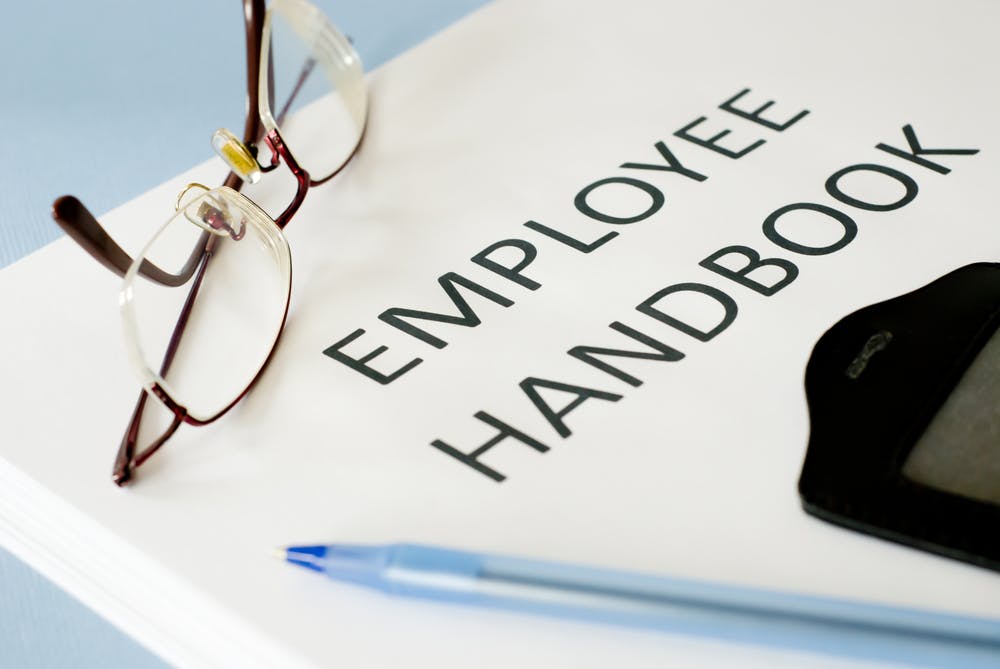Many companies, especially smaller businesses, do not get the chance to update their employee handbook on a regular basis.
That introduces risk to the business because the handbook may not be keeping up with new laws, like the Affordable Care Act (ACA) or the recent Massachusetts sick time law.
Surprisingly, many companies still have no policy governing new technologies such as social media and Bring Your Own Device (BYOD) policies, which have generated numerous lawsuits and pose data security risks, respectively. Once you have a handbook, it’s equally important to properly communicate these policies to employees and enforce them.
Failure to review and adjust the employee handbook on a frequent basis can lead to employee confusion, penalties and fines – and even lawsuits.
Employee handbooks are for ANY type of business
An employee handbook is recommended for any size business because it is the foundation for the workforce, sets the expectations and culture for new hires, and meets your obligation to effectively communicate policies and procedures to your employees.
An updated employee handbook makes it easier to enforce your rules, and discipline employees for failing to observe those rules. How can you discipline someone for a policy that doesn’t exist or a procedure that is not documented?
You’ll also have a more solid footing if a disgruntled employee involves you in a court case. The absence of a handbook can spell disaster for your company.
You might be tempted to take a shortcut and download a sample employee handbook template from the internet, but that’s risky too. Employee Handbooks should be unique and reflect your organization’s policies and procedures.
Most companies turn to HR experts and/or a Labor Law Attorney to ensure that they are in compliance with all federal, state and local laws and that they are not discriminating against protected classes.
Employee handbooks under government scrutiny
Employee handbooks have come under attack recently by the National Labor Relations Board, and fines have been levied against companies for:
- Discriminatory language;
- Vagueness;
- Outdated laws;
- Missing policies;
- Policies that are difficult to understand;
- How policies are enforced.
5 “must haves” for your employee handbook
At the very least, you should ensure that these five items are addressed in your employee handbook:
- Employment at Will;
- Non-Harassment Policy;
- Social Media Policy;
- Standards of Conduct;
- Acknowledgement & Signature pages.
There are many other dangers that can lurk within the employee handbook, but reviewing your policies more frequently and double-checking to make sure these “must haves” are included is a great first step to protect your workforce and your company.
This was originally published on the MassPay blog.
